Best Web Browsers of 2026
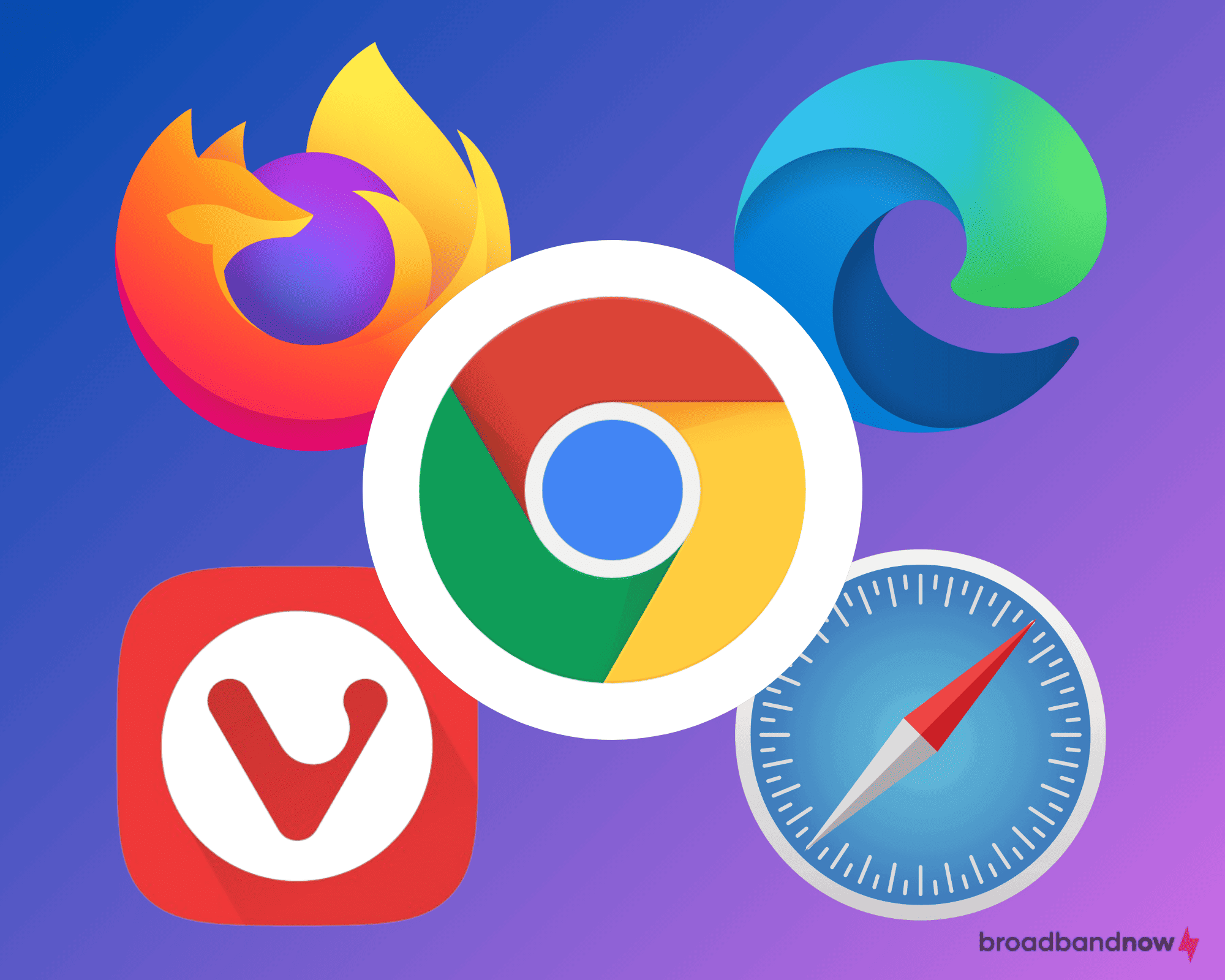
- Web browsers make it easy to perform online tasks like scrolling through websites, sending and receiving emails, and posting on social media.
- Tools like VPNs and antivirus software are useful for privacy and security while browsing the web.
- Google Chrome is the BroadbandNow Top Pick for web browsers in 2026 because it delivers the best features and integrates with Google’s infrastructure.
If you ever get yourself a new PC or upgrade your phone, the first question you’re probably asking yourself is what web browser you’re going to use. You probably have a favorite in mind, but there are actually a lot more options available than you might think. We looked at the freshest and most popular web browsers on the web and curated a list of our top favorites.
What You Should Look for in a Web Browser
While it can be fun to customize your web browser with different themes and colors, we think some things are essential to a good web browsing experience. We based our picks on several factors, including:
- Speed: Does the browser load each webpage quickly, or does it take some time? If you’re constantly switching between pages or clicking through your favorite sites, you’ll need a browser capable of keeping up with your clicks.
- Compatibility: Is the web browser compatible with your operating system? Most web browsers are cross-platform compatible, but we recommend you double-check to ensure the web browser you choose works for your device.
- Security: What safety features are included in the web browser? A good web browser should be able to block unnecessary pop-up windows, phishing scams, and other types of malware.
- Ease of use: How simple is it to use the browser? A web browser should be easy to use by someone who has never used one before or who’s switching from an older web browser.
- Extension support: Does the web browser support extensions? For people who want to customize their web browsing experience further, extensions are a great way to add extra tools and resources while performing basic online tasks.
VPN: Some users like to use a virtual private network (VPN) while browsing the internet. It’s completely optional, but enabling it while using your web browser adds an extra layer of security.
Google Chrome (BroadbandNow Top Pick)
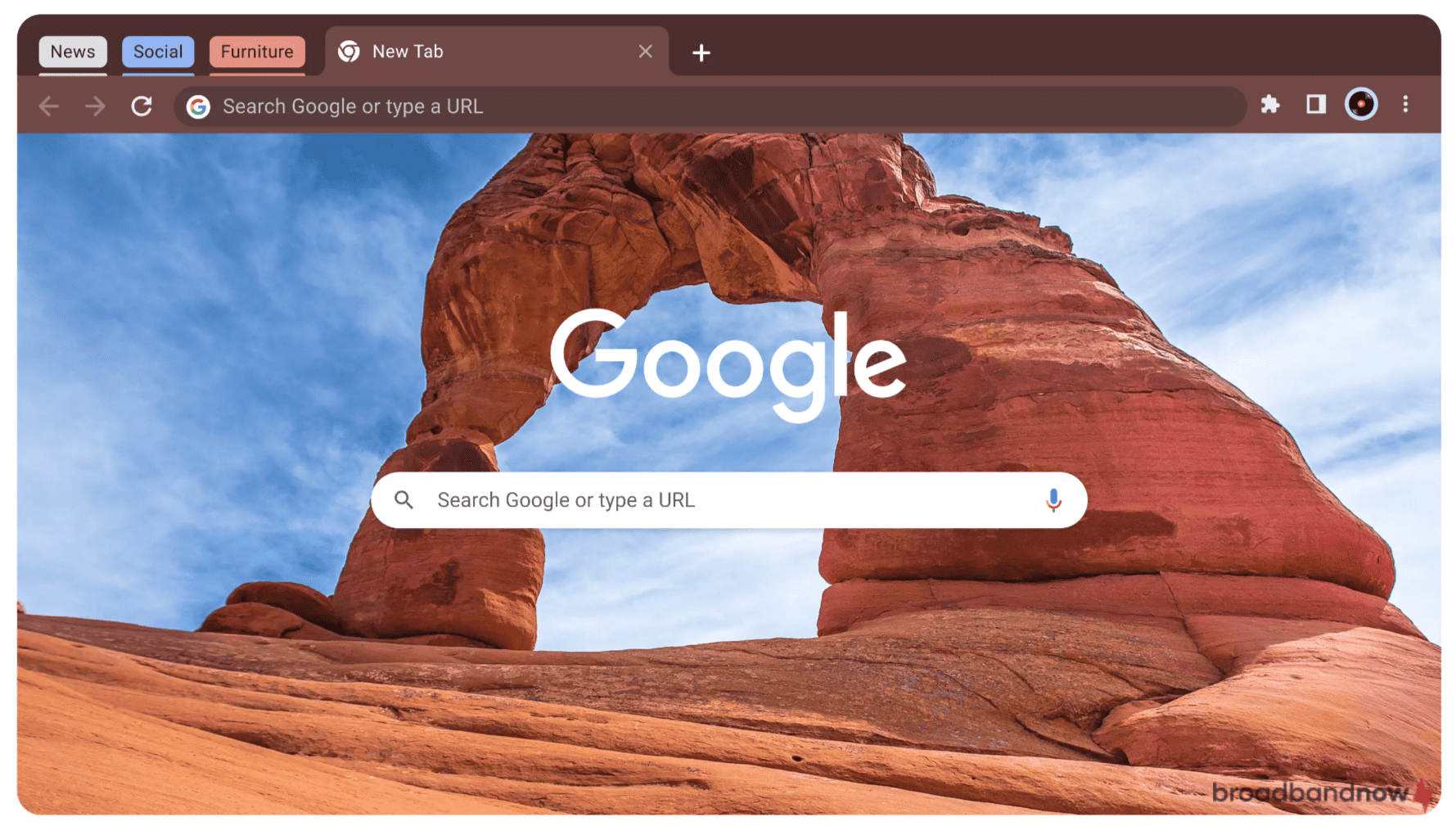
- Compatibility: Windows, macOS, Linux, Android, iOS
- Best features: GSuite integration, password protection, cross-platform compatibility
- Who it’s best for: All internet users
If you’re looking for a web browser that has it all (literally), look no further than Google Chrome. First launched in 2008, it has slowly become one of the most popular internet tools next to Google Search, a search engine under the same tech umbrella. Over the years, Google has managed to integrate all of its products — GSuite, Google Play, Google Maps, and more — to create one jam-packed web browser that’s cross-platform compatible and customizable.
Even with its extensive array of features, Chrome has some drawbacks. Chrome can be resource-heavy, so having too many tabs open can cause Chrome to slow down. Google recently added an Energy Saver feature to cut back on this RAM-hungry application, but having too many tabs can still bog down your operating system. Some Chrome users have also expressed concerns with its data-collecting practices, prompting them to supplement Chrome with security software and enable 2-Factor Authentication (2FA).
Pros
- All-in-one Google integration
- Fast webpage loading times
- Ability to sync between all of your devices
Cons
- Resource-heavy
- Privacy and data concerns
Mozilla Firefox (Best for Security)
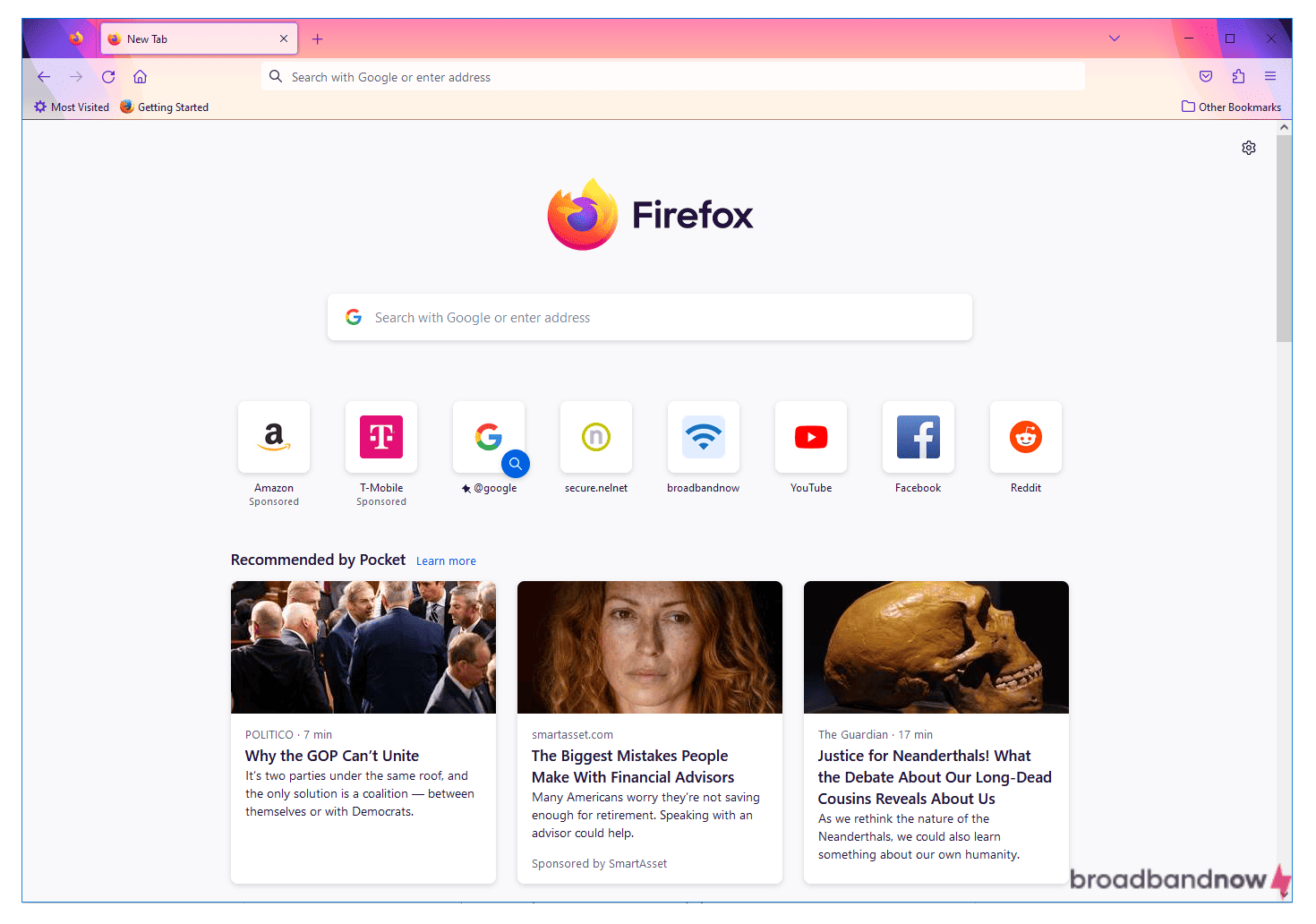
- Compatibility: Windows, macOS, Linux, Android, iOS
- Best features: Privacy protection, extension library, password syncing
- Who it’s best for: Users concerned with privacy and security
One of the strongest contenders in the world of web browsing, Mozilla Firefox was once an internet staple and stood as the best alternative to Internet Explorer. However, it has dropped in popularity since the release of Google Chrome. But that hasn’t stopped Mozilla from updating Firefox and touting its benefits over Chrome.
Firefox’s built-in browser tools, like Pocket, allow its users to save webpages and articles to read later, while its data protection provides a solid level of safety for its users. Add in Firefox’s various blocking features, an in-browser screenshot tool, and seamless password integration, and you have a fully equipped web browser experience. As an established web browser, Firefox is also more compatible with intensive and responsive modern webpages, especially versus Edge or Safari.
That said, with all these features, there are some drawbacks. Much like Chrome, Firefox can consume some of your device’s resources, particularly when you have numerous tabs open. So, if you’re browsing multiple websites with a lot of multimedia, you may notice some lag. We recommend Firefox as the best alternative to Google Chrome, and we think it’s best suited as a secure web browser solution.
Pros
- Strong security features
- Regular browser updates
- Simple and powerful built-in browser tools
Cons
- Resource-hungry (though not as much as Chrome)
- Lacks integration of other browsers
Apple Safari (Best for Mac Users)
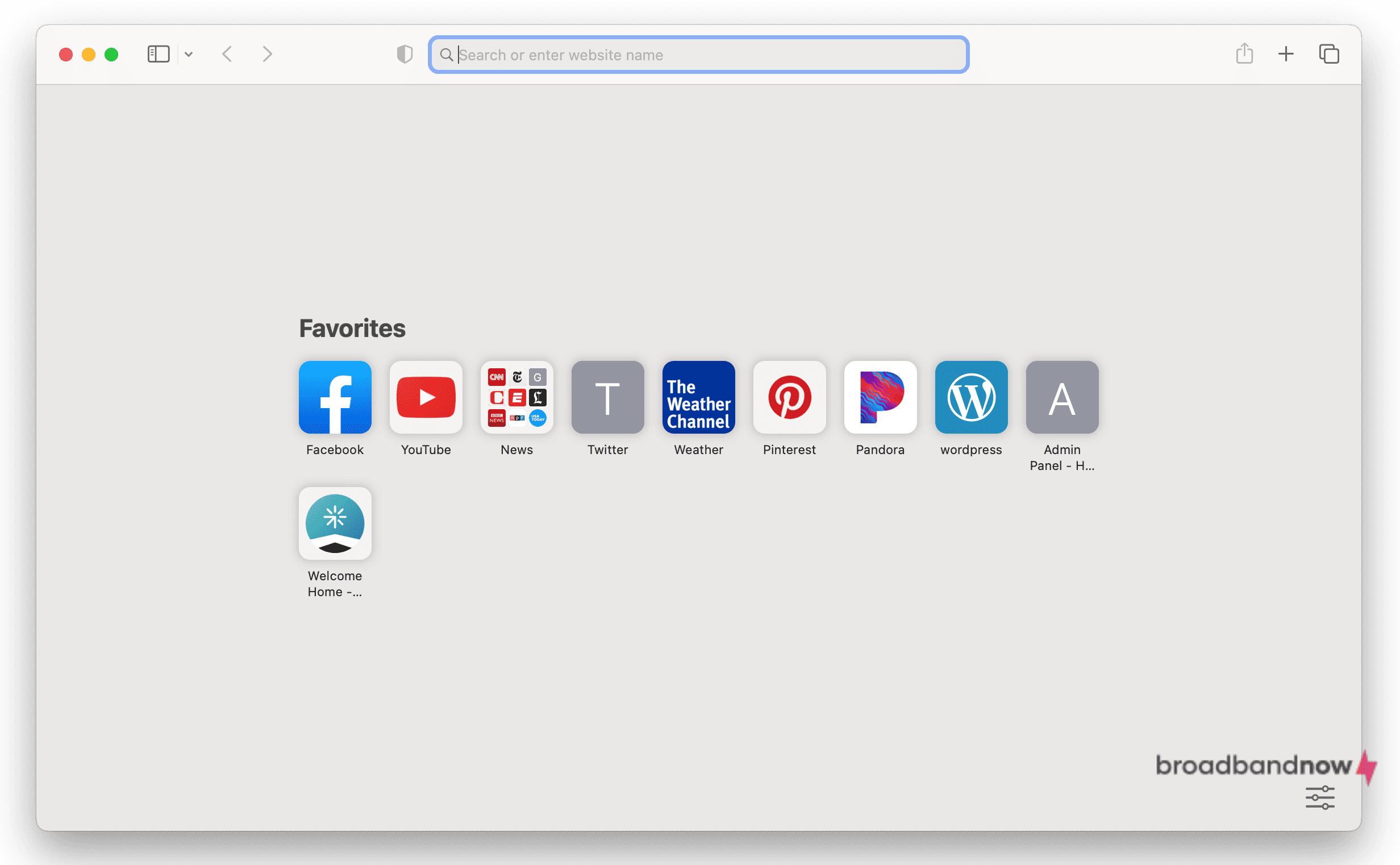
- Compatibility: macOS, iOS
- Best features: Apple integration, privacy protection, browser speed
- Who it’s best for: Apple users
If you’re an avid Mac, iPhone, or iPad user, you’re more than familiar with Safari, Apple’s flagship browser. Designed exclusively for Apple products, Safari boasts some of the fastest web browsing speeds out of all the browsers we’ve tested, which is impressive for a browser that’s been out since 2003. Like other Apple products, Safari is lightweight, but it still provides a good amount of security and privacy protection — not to mention it comes loaded with various customization options to give your Apple devices that personal touch.
The biggest and most obvious downside to Safari is its exclusivity. Outside of one five-year period where Safari could be used via Windows, Apple users are the only ones who have access to Safari. It’s not just the web browser that’s limited — extensions, plug-ins, and even some websites are incompatible with Safari software. Have at it if you’re an Apple fanatic, but we recommend choosing a different browser otherwise.
Pros
- Lightweight and easy to use
- Integrates seamlessly with Apple
- Multiple security features
Cons
- Only works with Apple devices
- Lacks extensions
- Some incompatibilities
Microsoft Edge (Best for Windows Users)
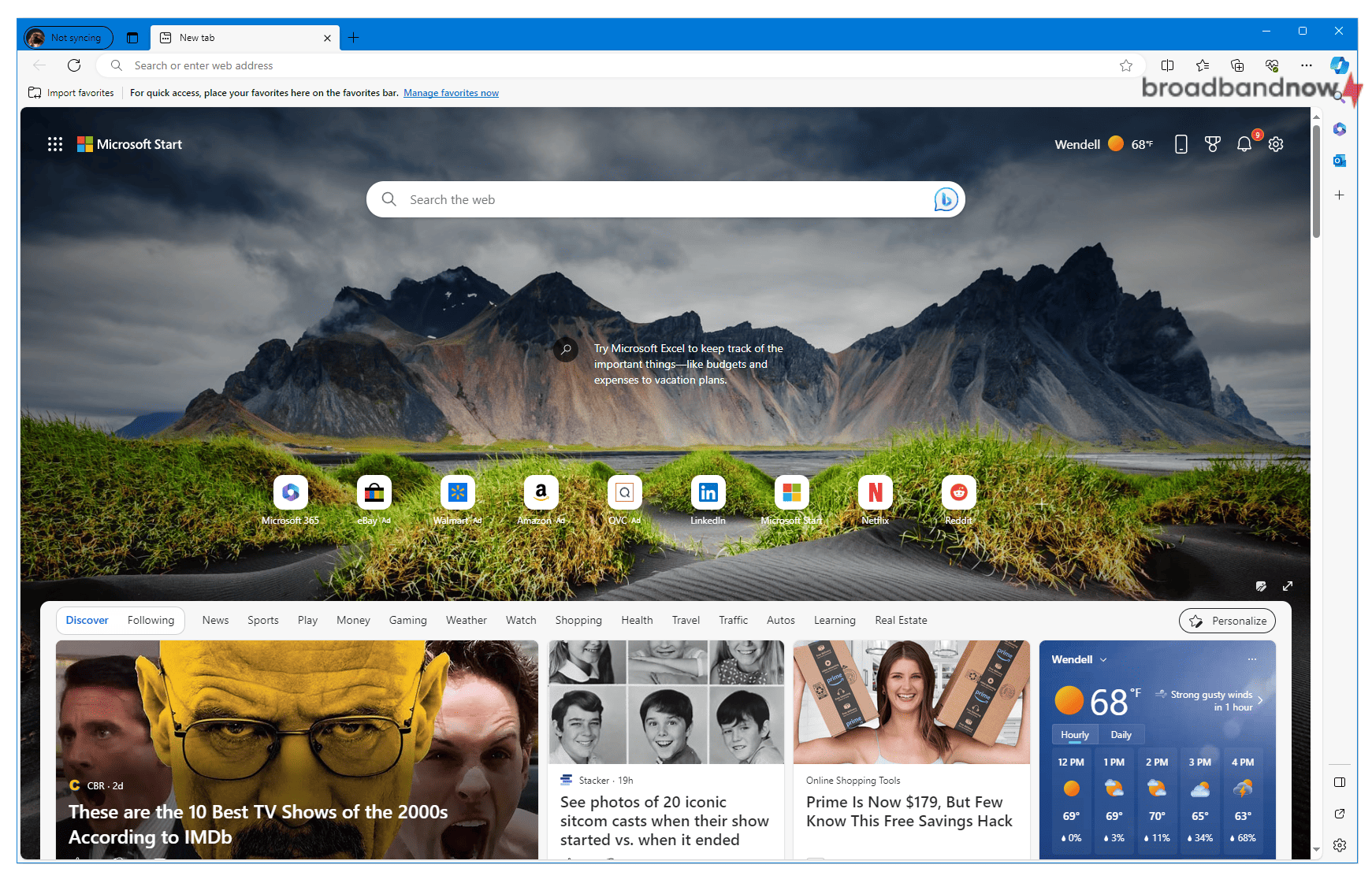
- Compatibility: Windows, macOS, Linux, Android, iOS
- Best features: Browsing speed, privacy protection, cross-platform compatibility
- Who it’s best for: Windows users
Microsoft Edge is to Windows users what Apple Safari is to Apple users, except you can use Edge across all platforms. Launched in 2015, Edge is one of the newer web browsers, which means its software is fresh and up-to-date. Its browsing speeds are on par with Chrome and Safari, and its Microsoft Defender SmartScreen feature protects users from malware and cyberthreats.
A huge downside to Edge is its UI. We found it inconvenient to scroll through webpages in a browser optimized for touch screens, as we mostly used Edge on a PC rather than on a mobile device or tablet. Outside of that, we were frustrated by the occasional crashes we experienced while scrolling through different tabs and pages. We still think Edge is a great browser, but we recommend using it for light internet tasks like sending emails or casually browsing.
Pros
- Fast browsing speeds
- Secure privacy protections
- Built-in productivity tools
Cons
- Limited extensions
- Poor UI experience
Vivaldi (Best for Customizing)
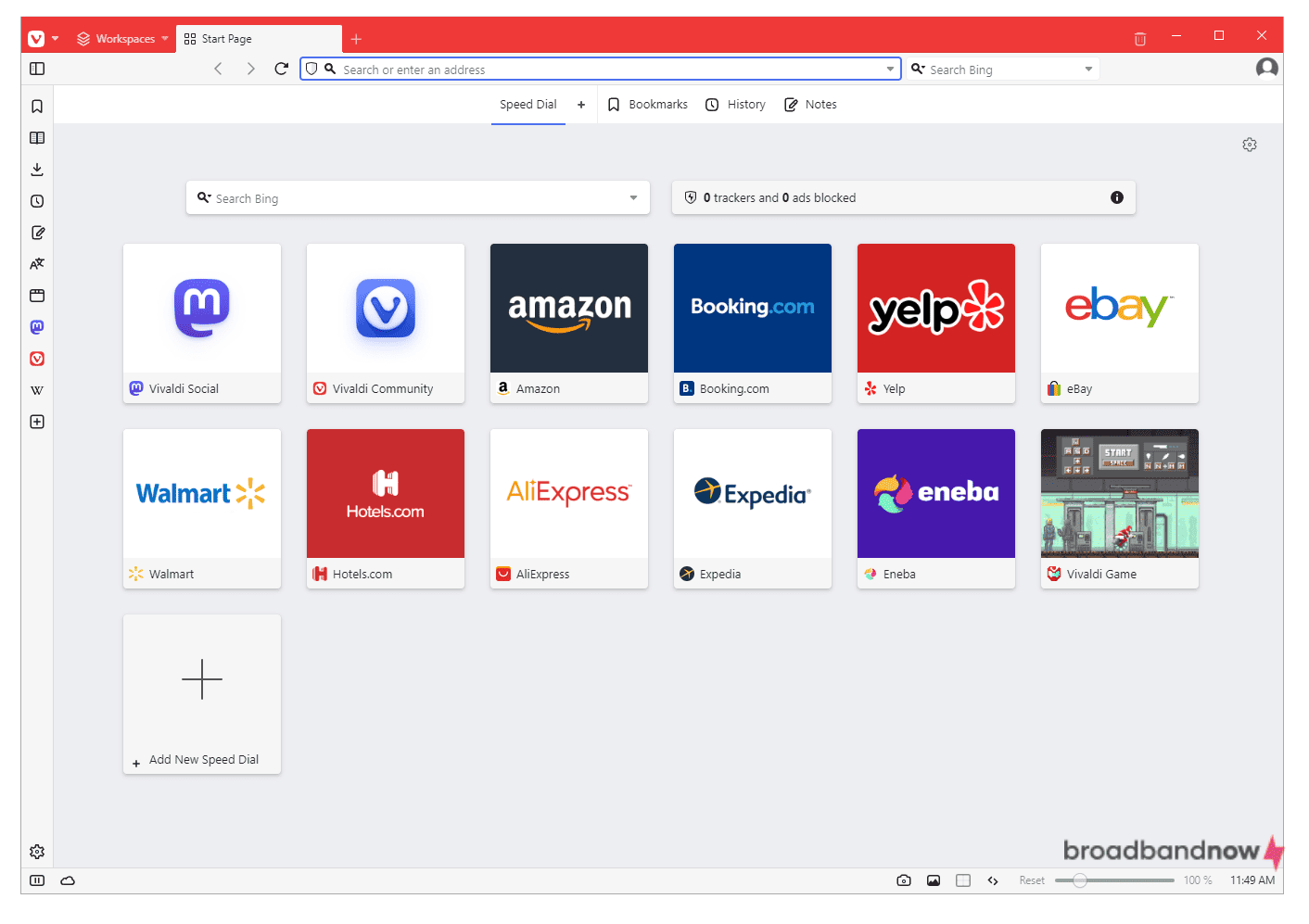
- Compatibility: Windows, macOS, Linux, Android
- Best features: Customization, web panels, password management
- Who it’s best for: Web browser enthusiasts
Out of the web browsers we reviewed, Vivaldi is the newest. Founded and created in 2016 by the same guys behind the Opera web browser, Vivaldi prides itself in offering the most customization tools. If you’re tired of the standard layout of a traditional browser, Vivaldi allows you to tailor it to your liking. Tabs on the bottom instead of the top? You can do that and more using Vivaldi.
Because it’s relatively new, there aren’t many cons associated with the software. We didn’t find any major issues with it, but we considered the steep learning curve of its customization feature a challenge for those who prefer the simple UI of other browsers. If you’re looking for a web browser that combines customization options with built-in productivity tools, we highly recommend using Vivaldi.
Pros
- Extensive customization options
- Ability to sync data across all devices
- Built-in productivity tools
Cons
- Less popular compared to older browsers
Extend Your Experience: Most web browsers often come with a library of extensions and plug-ins that can help you increase productivity or make your browsing experience easier and more accessible. Research some of the extensions each web browser offers and find the ones that work best for you before committing.
Other Web Browser Alternatives
While we enjoyed the web browsers we listed above, we also found a few newer ones that we think are great alternatives for users who want more options. Compared to some of our choices, all of these browsers are relatively new, which has its own set of pros and cons.
- Opera: Ideal for social media users, Opera is one of the few browsers that provides a built-in VPN. Its gaming counterpart, OperaGX, is great for gamers who want to optimize their PC for gaming.
- Brave: Browser ads can be a pain, but Brave’s built-in ad blocker lets you easily surf the web. It also has its own rewards system for its active users.
- Tor: Known officially as “The Onion Project,” Tor’s main selling point is its extensive privacy protection. With Tor, users can browse webpages, send emails, and chat online anonymously.
Frequently Asked Questions About Web Browsers
Do I need a VPN with my web browser?
Using a VPN with a web browser is entirely optional. However, it adds an extra layer of encryption and masks information about your internet, such as your IP address. Some web browsers, like Opera, have a built-in VPN as part of their software.
How does private or incognito mode work on a browser?
If you browse the internet in Private Mode (sometimes called Incognito Mode), your web browser won’t keep a history of webpages you’ve visited. Also, search engines like Google or Bing won’t record your search history. Remember, your internet provider and the websites you visit may still record your private history, though.
Can I use more than one browser on my device?
Yes. All browsers run independently of each other, even if you have them installed on the same PC, phone, or tablet. If your webpages are loading slowly through one web browser, they might run faster if you load them from a different web browser.
How important is security when choosing a web browser?
Nowadays, scammers and hackers are getting smarter with their methods of breaching privacy and obtaining sensitive information from internet users. With virus software becoming more discreet, it’s critical for web browsers to build security and privacy features to protect internet users and their personal information.
Are there web browsers that cost money to use?
Most web browsers are free and only require you to download and install their software onto your PC, phone, or tablet.
Can I customize my web browser?
Some web browsing software allows you to customize your browser pages with different themes and extensions. These features can help you tailor your browser interface to your needs.